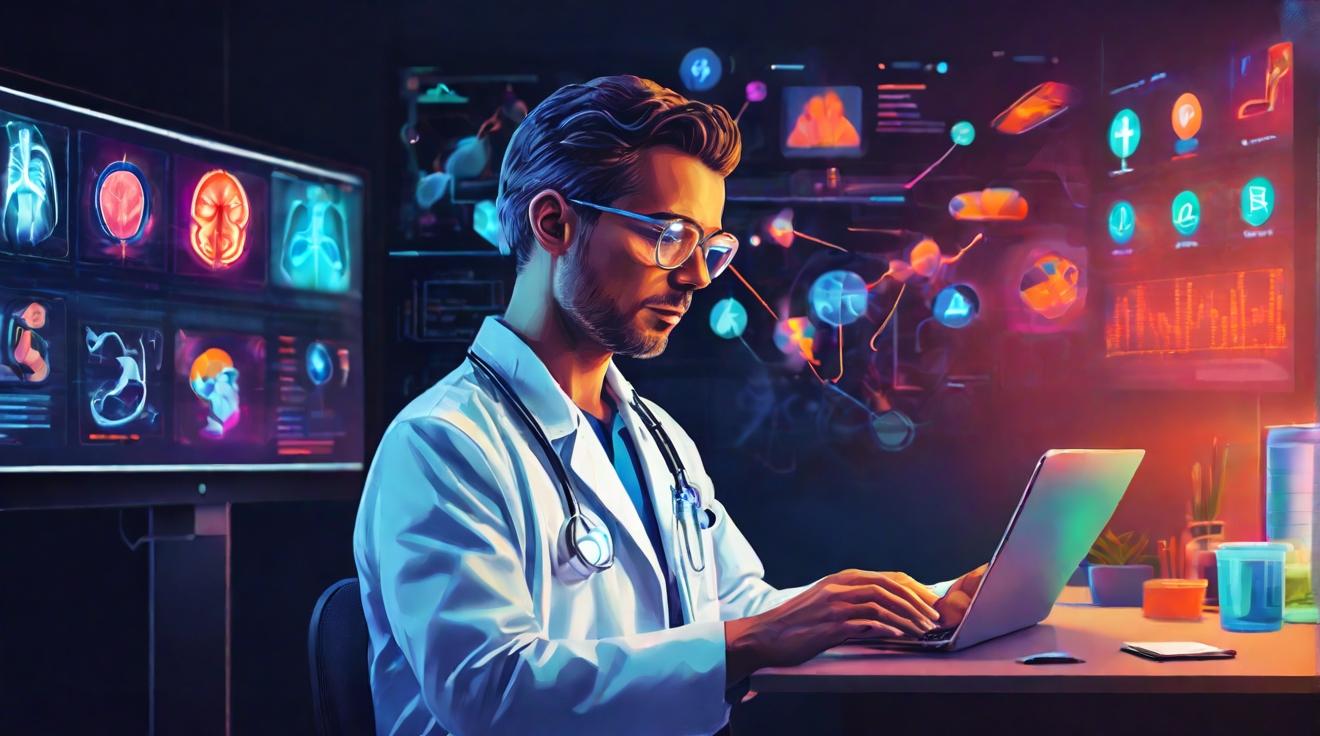Oxford University Innovates with DrugGPT to Enhance Pharmaceutical Care
In a groundbreaking stride towards revolutionizing pharmaceutical care, Oxford University has unveiled DrugGPT, an advanced AI tool designed explicitly to address the challenges of pharmaceutical prescriptions. This innovative technology is setting a new benchmark in healthcare by acting as a crucial safety net for medical professionals, offering them quick, reliable second opinions on prescribed medications and delivering comprehensive information to help patients grasp their therapeutic regimens better.
DrugGPT stands out as a pioneering solution, ensuring a higher level of patient care and safety in medication management.
How DrugGPT is Transforming Medical Prescriptions
The DrugGPT chatbot, a central feature of this innovation, empowers medical practitioners to input a patient's specific health scenario, generating a curated list of medication suggestions. What makes these recommendations particularly valuable are the detailed insights into potential side effects and drug interactions, backed by references to relevant guidelines and medical studies. Such depth of information underscores DrugGPT's unmatched capability to marry AI precision with critical medical knowledge, achieving performance levels on par with human medical specialists.
Professor David Clifton, the project's lead researcher, highlighted the AI tool's capacity to supplement medical professionals' expertise, reinforcing DrugGPT as a groundbreaking addition to healthcare technology.
Addressing Medication-Related Errors with AI
England alone witnesses millions of medication-related errors annually, posing significant risks and adding unnecessary healthcare expenditures. Recognizing the imperative need to bolster patient understanding and medication adherence, DrugGPT offers a promising avenue to minimize these adverse incidents significantly.
Consultant obstetrician Dr. Lucy Mackillop underscores the tool's potential in providing critical data to enhance patient comprehension, thereby mitigating medication-related issues.
Despite the promising prospects of DrugGPT and similar AI-driven technologies in reducing medical errors, Dr. Michael Mulholland stresses the importance of ensuring sufficient healthcare resources and staff to maintain safe patient care. This cautionary stance underlines the essential need for advanced safety measures and comprehensive testing before such technological solutions are broadly implemented.
The Broader Impact of AI on Healthcare
The introduction of AI technology in healthcare, exemplified by DrugGPT, is part of a broader trend of digital transformation within the medical field. AI systems have dramatically improved diagnostics, patient prognosis, and even the operational efficiency of healthcare services across various specializations. From Google's diabetic retinopathy detection DCNN to AI assistants offering 24/7 clinical support, the impact of AI on enhancing patient outcomes and experiences is undeniable.
In light of these advancements, the American Medical Association (AMA) is advocating for stringent safeguards and clarity on liability protection against AI-related medical negligence. With an emphasis on "augmented intelligence," the AMA's stance reflects a commitment to integrating AI into healthcare in a way that augments, rather than replaces, the critical judgment of human medical professionals.
Conclusion
As Oxford University's DrugGPT demonstrates, the future of healthcare is inextricably linked with the innovative application of AI technologies. While challenges such as liability issues and the need for rigorous testing remain, the potential for AI to significantly improve patient care and safety is immense. The ongoing adoption and integration of AI tools like DrugGPT in healthcare practices promise a future where medical professionals are better equipped, patients are more informed, and healthcare outcomes are vastly improved.
The evolution towards AI-enhanced healthcare is not just a possibility; it's becoming a reality, signaling a new era in medical care and patient management.
Analyst comment
Positive
As an analyst, the introduction of DrugGPT by Oxford University is expected to enhance pharmaceutical care by providing medical professionals with quick and reliable second opinions on prescribed medications. This AI tool will act as a safety net, offering comprehensive information to help patients better understand their therapeutic regimens. DrugGPT has the potential to minimize medication-related errors and improve patient outcomes. However, it is essential to ensure sufficient healthcare resources and staff to maintain safe patient care and to implement comprehensive testing before widespread use.













